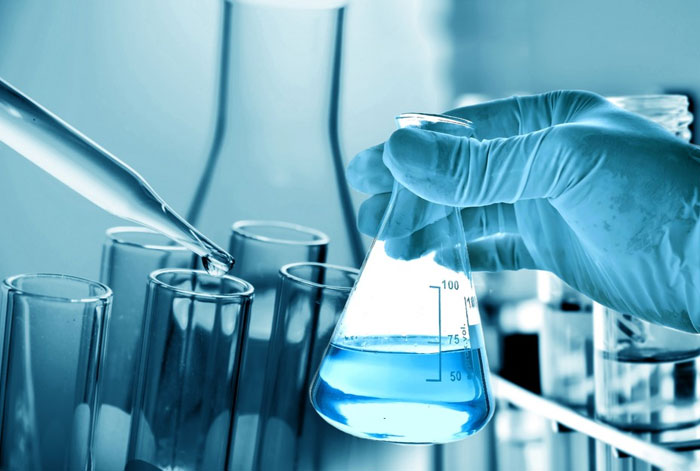Locate Trusted Water Testing Services Near Me for Tidy Consuming Water
Locate Trusted Water Testing Services Near Me for Tidy Consuming Water
Blog Article
Learn Just How Water Testing Can Spot Impurities and Shield Your Family members's Wellness
Understanding the significance of water testing is essential for guarding your household's health, as our water supply can nurture undetected threats. By exploring the auto mechanics of water testing, one can uncover the undetectable dangers hiding in relatively pristine water sources.
Importance of Water Examining
Recognizing the important duty water plays in maintaining life, the relevance of water screening can not be overstated. Making sure that water is free from damaging materials is crucial for preserving healthy and balanced areas and communities. Water Tesing Services Orlando.
Water testing functions as an aggressive step to determine prospective dangers that may endanger water top quality. Through systematic analysis, it helps find physical, chemical, and organic criteria that can pose risks to human health and wellness. Normal screening enables for the very early discovery of concerns, assisting in prompt treatments to avoid prevalent contamination and linked health issue.
Furthermore, water testing supports governing conformity, making certain that water companies meet well established safety standards and standards set by governmental authorities. It promotes transparency and accountability, building public count on in the supply of water system. Testing supplies important information that informs water management methods, enabling lasting use and conservation of this priceless source.
Fundamentally, water testing is an important tool that safeguards public wellness, ensures governing adherence, and advertises the sustainable monitoring of water resources. Its relevance in securing both neighborhoods and people can not be undervalued.
Usual Water Impurities
Amongst the numerous elements that can compromise water high quality, usual water pollutants consist of a variety of physical, chemical, and organic substances that pose substantial dangers to human wellness and the environment. Physical pollutants typically involve debris or natural materials suspended in water, which can influence clarity and taste. Chemical impurities encompass a vast array of compounds, consisting of pesticides, herbicides, metals like lead and mercury, and industrial chemicals. These chemicals can penetrate water products via agricultural overflow, commercial discharges, or leaching from pipes and storage space containers.
Biological impurities, largely bacteria, infections, and protozoa, develop from human and animal waste going into water supply. Microorganisms such as E. coli, Giardia, and Cryptosporidium are notorious for causing intestinal health problems and can be especially harmful to kids, the elderly, and those with endangered body immune systems. Nitrates and nitrites, commonly originating from plant foods, position an additional health threat, specifically to babies, possibly leading to problems like methemoglobinemia or "blue child syndrome."
In addition, arising pollutants, including pharmaceuticals and personal care items, have elevated problems due to their determination and unknown long-lasting impacts. Recognizing these contaminants is important for implementing efficient water treatment strategies and guaranteeing safe alcohol consumption water.
Just How Water Testing Works
Comprehending the range of contaminants in water highlights the relevance of efficient screening approaches to safeguard public wellness. Water screening is a systematic process created to determine and measure numerous impurities that can posture dangers to human wellness.
Once samples are gathered, they undertake laboratory analysis using different methods. Chemical screening typically involves spectrometry or chromatography, both of which can identify and measure particular chemical compounds. For microbiological screening, techniques such as membrane filtering or enzyme substratum examinations are made use of to spot pathogenic bacteria. In addition, physical characteristics like ph, color, and turbidity are examined to supply understanding right into the total high quality of the water.
The accurate approaches employed in water screening depend Recommended Site upon the particular contaminants of issue and the water's planned use. By continually applying these rigorous screening procedures, scientists and public health officials can guarantee the safety and top quality of water, thereby safeguarding communities from possible health hazards.
Picking the Right Test
Exactly how does one determine the most appropriate water examination for their needs? Picking the ideal examination entails recognizing both the certain attributes of the water resource and the possible pollutants that may exist. The primary step is evaluating the water resource-- be it metropolitan, well, or surface water-- as each has unique dangers. Community water could need screening for disinfectant byproducts, while well water may need screening for nitrates, bacteria, and hefty metals.
Following, think about current occasions and ecological variables. Neighboring agricultural tasks might require screening for herbicides and chemicals, whereas industrial areas can call for look for chemical toxins. In addition, any changes in water look, smell, or taste must motivate particular testing for common contaminants like lead, chlorine, or organic virus.
Specialist water screening services offer comprehensive kits that target a large range of possible pollutants. These sets usually straighten with requirements established by the Epa (EPA) or regional health departments. Read Full Article For a much more tailored strategy, speaking with a water high quality expert can give understandings into which details tests are required based on local issues and private health and wellness needs, ensuring the protection of your household's wellness.

Keeping Water Security

In addition to testing, appropriate maintenance of water supply plays an essential duty. This consists of inspecting and servicing plumbing systems, tank, and septic systems to stop leaks or backflow that can present impurities - Well water testing services. Utilizing water filtration systems made to attend to certain local issues can further safeguard against pollutants, offering an additional layer of protection
Public recognition and education and learning are similarly crucial in preserving water security. Areas must be notified about potential threats connected with regional water sources and the necessary actions to alleviate them. Urging public involvement in water security initiatives fosters a cumulative duty that boosts general effectiveness.
Inevitably, a thorough approach that incorporates routine testing, system upkeep, and more information neighborhood involvement is important in safeguarding water high quality. By doing so, households can be ensured of secure and clean water, protecting their health and wellness and well-being.

Conclusion
Normal water testing is important for recognizing contaminants such as germs, hefty metals, and chemicals that present health risks. By assessing water samples, undetected risks can be identified, guaranteeing the arrangement of risk-free drinking water. This positive strategy helps produce a healthier environment and assists in educated decision-making pertaining to water security. Picking ideal testing methods and maintaining alertness in water quality are important actions in guarding public health and wellness and making sure the health of all home participants.
Recognizing the relevance of water testing is crucial for securing your household's health and wellness, as our water supply can harbor unseen risks.Water testing offers as an aggressive action to identify prospective risks that may endanger water quality.Additionally, water testing supports governing compliance, making sure that water suppliers satisfy well established safety standards and guidelines set by governmental authorities. Local water may require screening for disinfectant results, while well water might need testing for nitrates, bacteria, and hefty steels.
Routine water testing is an important part in maintaining the top quality of water resources, enabling prompt interventions before contaminants get to unsafe levels.
Report this page